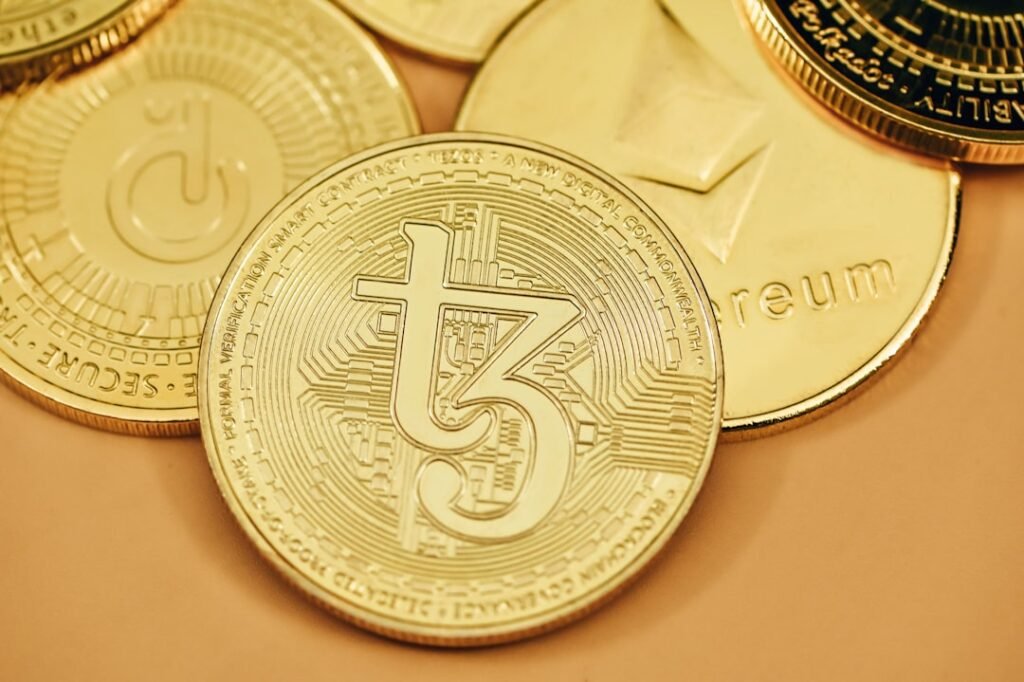The Ultimate Guide to Crypto Consumer Protection: Shield Your Investments from Fraud and Scams
The allure of cryptocurrency is undeniable. Promises of decentralization, financial freedom, and potentially lucrative returns have drawn millions of investors into the digital asset space. However, this revolutionary technology operates in a landscape fraught with peril. Cryptocurrency scams have exploded by a staggering 900% since the start of the pandemic, with Americans losing over $1 billion to crypto-related fraud in 2021 alone.
Before you send another coin or make your next investment, arm yourself with the knowledge to navigate this volatile and often predatory environment. Your financial security depends on it.
What Exactly Are You Dealing With? Understanding Cryptocurrency
At its core, cryptocurrency is a type of digital currency that generally exists only electronically. There is no physical bitcoin or Ether coin. You use your phone, computer, or a cryptocurrency ATM to buy it. While Bitcoin and Ether are the most recognized names, thousands of different cryptocurrencies exist, and new ones are created constantly.
People are drawn to crypto for various reasons: the potential for quick payments, the desire to avoid traditional banking fees, or the perceived anonymity it offers. Others hold it purely as a speculative investment, hoping its value will skyrocket.
But here’s the critical part most promoters leave out: cryptocurrency is fundamentally different from traditional government-backed money, and these differences create immense risk for the consumer.
The Stark Differences: Crypto vs. The U.S. Dollar
Understanding these distinctions is your first line of defense.
- لا يوجد دعم حكومي The dollars in your FDIC-insured bank account are protected. If the bank fails, the government steps in. Cryptocurrency held in digital wallets or on exchanges enjoys no such protection. If the platform holding your crypto is hacked, goes out of business, or simply vanishes, your money is gone forever. The government has no obligation to help you recover it.
- التقلبات الشديدة: The value of cryptocurrency can change by the hour, often dramatically. An investment worth thousands of dollars today could be worth only hundreds tomorrow. This volatility far exceeds that of traditional stocks and bonds. Unlike established companies, there is no guarantee a fallen crypto's value will ever recover.
The High Stakes of Paying with Crypto
Using cryptocurrency for transactions is nothing like using a credit card. The rules are completely different, and they are not in your favor.
- انعدام الحماية القانونية Credit and debit cards come with robust legal protections. You can dispute fraudulent charges and your bank has a process to help you get your money back. With cryptocurrency, there are typically no such protections. Once the crypto leaves your wallet, it's gone.
- Irreversible Payments: A credit card payment can be reversed. A cryptocurrency payment cannot. You can only get your money back if the person you paid willingly sends it back. This makes it absolutely crucial to know who you are dealing with.
- The Myth of Anonymity: While often marketed as anonymous, cryptocurrency transactions are typically recorded on a public ledger called a "blockchain." This ledger can include the transaction amount and the wallet addresses of the sender and recipient. While not directly tied to your name, this information can sometimes be used to identify you, especially if a seller also has other details like your shipping address.
The Scammer's Playbook: How to Avoid Cryptocurrency Cons
Scammers are sophisticated, relentless, and they have perfected schemes specifically designed for the crypto world. Their tactics prey on hope, fear, and a lack of understanding. Here’s what to watch for.
The Golden Rule: Only Scammers Demand Payment in Cryptocurrency
Let this sink in: No legitimate business or government agency will ever demand you send cryptocurrency in advance. Not to purchase something, not to protect your money, not to confirm your identity. Anyone who does this is a scammer, 100% of the time.
Investment Scams: The "Too Good to Be True" Trap
Investment scams are the top method scammers use to steal your crypto. They promise enormous returns with zero risk, and they often start on social media, dating apps, or with an unexpected text or email.
- The "Investment Manager": You're contacted out of the blue by someone claiming to be a brilliant investment manager. They promise to grow your wealth exponentially but insist you must buy cryptocurrency and transfer it to their online platform. The website looks professional, but it's entirely fake. If you try to withdraw your "profits," you'll be blocked or hit with exorbitant, impossible-to-pay fees.
- The Fake Celebrity: A scammer impersonates a famous entrepreneur or celebrity on social media, claiming they can multiply any cryptocurrency you send them. Remember, celebrities are not contacting you personally to manage your money. Any link they send or QR code they provide will funnel your funds directly into a scammer's wallet.
- The Romantic Investor (Pig Butchering): You meet someone on a dating app who is charming, successful, and quickly builds a romantic connection. After gaining your trust, they casually mention how they’ve made a fortune investing in crypto and offer to help you do the same. This is a devastatingly effective scam. Once you send them crypto or money to "invest," your online love interest—and your life savings—will disappear.
- Guaranteed Returns: Let's be clear: Nobody can guarantee profits, especially in the volatile crypto market. Anyone who promises guaranteed returns or big payouts is lying. Ignore the testimonials and celebrity endorsements; they are easily faked.
- Free Money Offers: Promises of free cash or cryptocurrency are always, without exception, fake.
Business, Government, and Job Impersonators
Scammers exploit trust by pretending to be someone you know or rely on.
- Fake Company warnings: You get a text, call, or pop-up alert claiming to be from Amazon, Microsoft, FedEx, or your bank. They say your account is compromised and to secure it, you must buy crypto and send it to them. This is a lie. Legitimate companies will never make such a demand.
- Fake Crypto Coins: Scammers create slick websites and social media ads claiming that a well-known company is launching its own cryptocurrency coin or token. They create a buzz to trick people into buying a worthless asset. Always research whether a company has genuinely issued a coin through established news sources.
- Government Impersonators: A caller pretends to be from the IRS, Social Security Administration, or law enforcement. They claim you owe back taxes, your benefits are frozen, or there's a warrant for your arrest. The solution? They instruct you to go to a cryptocurrency ATM, buy crypto, and send it to them for "safe keeping" or to pay a fine. They might even stay on the phone to talk you through the process. This is a terrifying but completely fraudulent scheme.
- Fake Job Listings: Scammers post fake jobs on legitimate job sites for roles like "crypto asset manager" or "blockchain consultant." The "job" requires you to pay an upfront fee in cryptocurrency to get started. In another variant, they send you a fake check to deposit, instruct you to withdraw a portion to buy crypto for a "client," and send it to them. The check will eventually bounce, and you will be responsible for the full amount withdrawn, plus the lost cryptocurrency.
Blackmail and Extortion
Scammers may send emails or letters claiming to have embarrassing or compromising photos, videos, or personal information about you. They threaten to release it unless you pay them in cryptocurrency. Do not pay. This is criminal extortion. You should report it to the FBI immediately.
Your Action Plan: How to Stay Safe
Protecting yourself requires vigilance and a healthy dose of skepticism.
- Never Pay in Crypto to Anyone Who Contacts You First. This is the simplest and most effective rule.
- Research Extensively. Before investing in any crypto project, search online for the company or coin name plus keywords like "review," "scam," or "complaint." See what others are saying on multiple pages of results.
- Understand the Technology. Don't invest in what you don't understand. Take time to learn how blockchain and cryptocurrencies work from reputable, non-sales-oriented sources.
- Beware of Get-Rich-Quick Promises. If it sounds too good to be true, it is. Low risk and high return is a fantasy in any market, especially crypto.
- Secure Your Wallet. Use strong, unique passwords and consider "cold storage" (an offline hardware wallet) for significant amounts of cryptocurrency. Never share your private keys or seed phrase with anyone.
- Invest Only What You Can Afford to Lose. Given the volatility and lack of protection, crypto should be considered a high-risk speculative asset, not a guaranteed retirement plan.
If You Are Targeted: How to Report Cryptocurrency Scams
If you encounter fraud or lose money to a cryptocurrency scam, report it immediately to the following agencies. Your report helps them track scammers and prevent others from becoming victims.
- The Federal Trade Commission (FTC) at ReportFraud.ftc.gov
- The Commodity Futures Trading Commission (CFTC) at CFTC.gov/complaint
- The U.S. Securities and Exchange Commission (SEC) at sec.gov/tcr
- The Internet Crime Complaint Center (IC3) at ic3.gov/Home/FileComplaint
- Your state's financial regulator or Attorney General's office.
- The cryptocurrency exchange platform you used to send the money.
The world of cryptocurrency is the modern-day wild west. While it holds potential, the landscape is riddled with traps designed to separate you from your money. By understanding the risks, recognizing the scams, and adopting a cautious, informed approach, you can navigate this new frontier and protect your hard-earned assets from the ever-growing threat of fraud.












